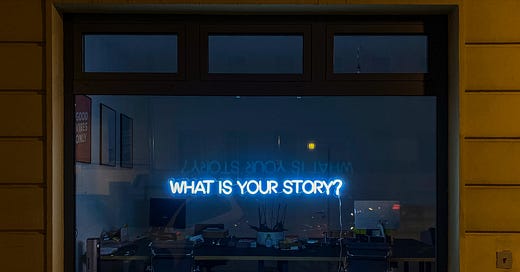A few months ago, I had a banner week in my new(ish) career as a freelance writer.
Within a matter of just a few days, I published a major feature in WIRED about the evacuation of Kabul, a fun piece for The New York Times about bike racing in Central Park, and a pair of travel stories with Condé Nast Traveler and Travel + Leisure.
And with each byline, as I do whenever I publish a story in a major paper, magazine, or website, I felt a pang of sadness that my mother never got to see these incredible moments realized. It’s a sadness that is usually tempered by a sense of wonder as, in a way, she didn’t need to see the moments realized, because she always knew they would come.
A bit of backstory.
My mother was one of the most talented writers I’ve ever known. She was a force, poetic and flowery when she needed to be, dry and powerful when necessary. But most of all, she knew how to tell the hell out of a story. Throughout her life, she wrote poems and prose. Her personal notes and birthday cards were masterclasses in the efficiency of language. In college, she wrote for New York City’s Gramercy Herald and deferred an acceptance to Columbia University’s MFA program in order to help support my father through medical school (something my father didn’t advocate for but once my mother’s mind was made up, it was virtually impossible to change). She was the person who taught me almost everything I know about writing and how to tell a story.
She also knew, even though she died years before I’d ever take a stab at selling a story, that, someday, somehow, my road would lead me to where I am today and where I’m heading in the future.
“You’re a storyteller, Mikey,” she’d tell me, back when I was deep in the throes of a wild life in the record industry, realizing an entirely different set of dreams. “Hide from it if you want, but eventually, it’ll come find you.”
Of course, as with most things, she was right. And eventually it did find me.
Which is why the sadness at seeing my name in places like The New York Times or publishing a major feature in a magazine like WIRED is tempered. Because even though she’s not here to see, she knew. And in that regard, I don’t feel like she’s missing anything. Because knowing is far more important than seeing.
So what’s up then, Mike? Why all this talk about dead moms and unrealized dreams?
Because when I think of these little moments that I share with my mother’s memory, as it often does these days, my gaze shifts from that of me as a son (or, more often, as a person in the world) to that of me as a father. And I immediately start wondering whether I’ll someday have the capacity to intuit my children the way she did me (a tall order considering she was able to read everyone she came in contact with like a roadmap).
And I wonder if my children will find some solace long after I’m gone, achieving things I’ll never get to see, but knowing that I knew, all those years ago, that that place is where their road was going to someday take them, detours, wrong turns, backtracks, and all.
I sure hope so.




Your mom is a special woman who touched the lives of so many. She is still inspiring to me as I read how you reminisce of her special nature. She was a woman full of love far beyond her amazing writing. I will forever love her!
I love how you write about parenting -- your mother sounds divine.